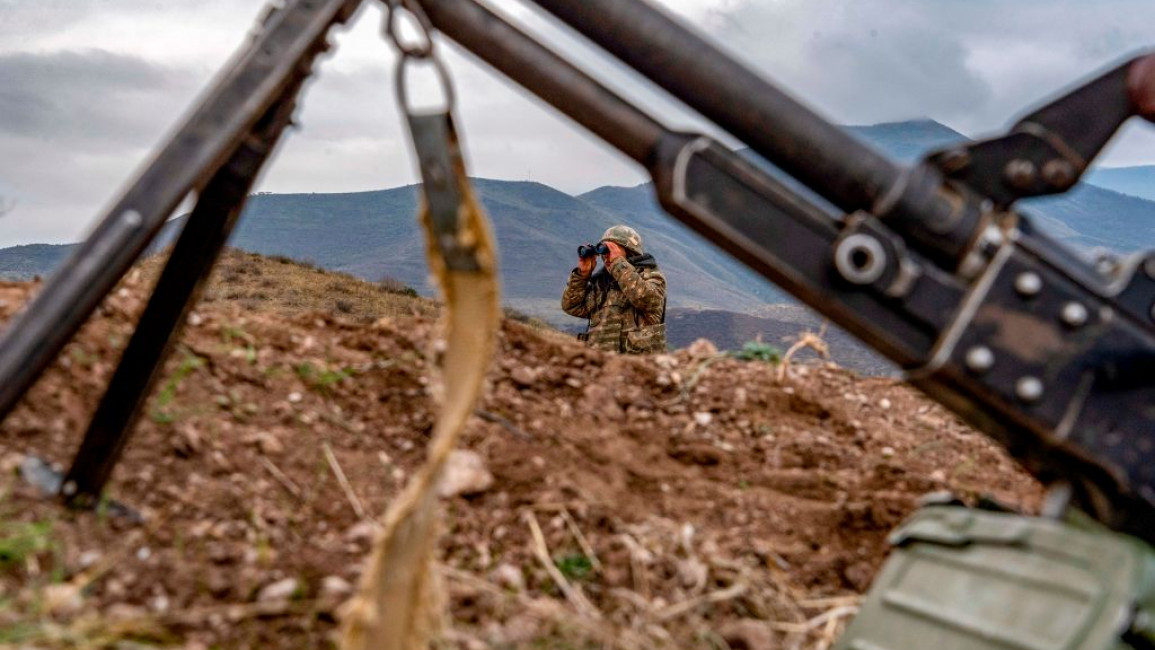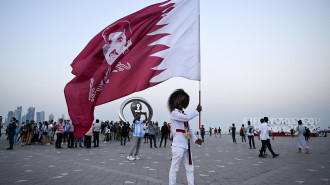Azerbaijan says 71 of its troops died in border clashes with Armenia
Azerbaijan said on Thursday that 71 of its troops had died in border clashes with Armenia over the last two days, increasing an earlier toll of 50 killed in the worst fighting since 2020.
Yerevan said a ceasefire was holding Thursday on the Armenian-Azerbaijani border, with no fresh violence reported overnight.
On Thursday, Azerbaijan's defence ministry published a list of 71 servicemen killed in clashes this week between the historic rivals.
Yerevan has said 105 of its troops were killed.
Clashes erupted on Tuesday but ended "thanks to the international involvement" overnight on Thursday, Armenia's security council said, after earlier failed attempts from Russia to broker a truce.
Baku and Yerevan have traded accusations of initiating the violence along their shared border, which also saw hundreds of Armenian civilians flee their homes near the frontier.
The escalation comes as Yerevan's closest ally Moscow is distracted by its nearly seven-month invasion of Ukraine.
A delegation of the Collective Security Treaty Organisation (CSTO) - a Moscow-led grouping of several ex-Soviet republics - is due in Yerevan later Thursday, Armenia's foreign ministry said.
Armenia is a member of CSTO but Azerbaijan is not.
On Tuesday, Armenia's security council asked for military help from Moscow, which is obliged under the treaty to defend Armenia in the event of foreign invasion.
In Yerevan, opposition supporters staged an anti-government protest overnight, demanding Prime Minister Nikol Pashinyan's resignation, after rumours he was planning to agree on concessions in decades-long territorial dispute with Azerbaijan.
The Caucasus neighbours fought two wars - in the 1990s and in 2020 - over the contested Nagorno-Karabakh region, Azerbaijan's Armenian-populated enclave.
The six weeks of fighting in 2020 claimed the lives of more than 6,500 troops from both sides and ended with a Russian-brokered ceasefire.
Under the deal, Armenia ceded swathes of territory it had controlled for decades, and Moscow deployed about 2,000 Russian peacekeepers to oversee the fragile truce.
The Ukraine conflict has changed the balance of power in the region, as Russia faces and increasing international isolation.
The European Union has since led the Armenia-Azerbaijan normalisation process, which involves peace talks, border delimitation and the reopening of transport links.
During EU-mediated talks in Brussels in May and April, Azerbaijani President Ilham Aliyev and the Armenian leader Pashinyan agreed to "advance discussions" on a future peace treaty.
They last met in Brussels on August 31, for talks mediated by the European Council President Charles Michel.
Analysts have said the latest escalation has largely undone Brussels' efforts to bring Baku and Yerevan closer to a peace agreement.
Ethnic Armenian separatists in Nagorno-Karabakh broke away from Azerbaijan when the Soviet Union collapsed in 1991. The ensuing conflict claimed around 30,000 lives.



![Widespread famine is imminent in Gaza [Getty Images]](/sites/default/files/styles/image_330x185/public/2024-03/GettyImages-2015647000.jpg?h=199d8c1f&itok=mJWWP_Td)